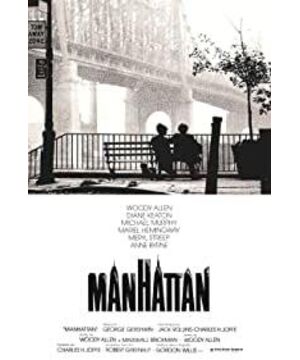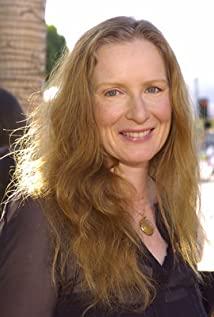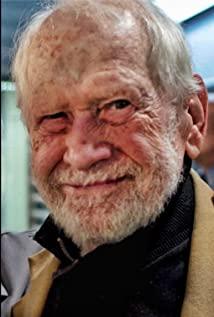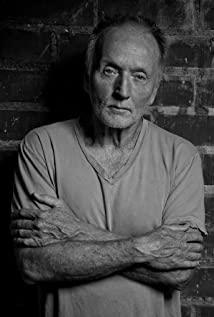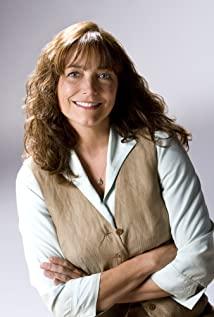Woody Allen is one of the few directors who can tell a good story in a movie while expressing a deep point of view. As someone once said, in Woody Allen's film system, there are several motifs, such as love relationships, and the hypocrisy of intellectuals. And around the motif, Woody Allen can always give very different imaginations and answers through a movie, and "Manhattan" is one of these answers.
"Manhattan" talks about the chaotic love life that happened in the big city in 1979-extramarital love, love between old and young, these feelings are also debatable forms of love in today's view. The heroes and heroines in the play also have their own entanglements and worries because of these bohemian feelings. What Woody Allen worries about is that he is 42 years old and should not fall in love with a 17-year-old high school student, Tracey. Woody Allen, a self-proclaimed intellectual, has always had a strong sense of morality driving him behind his back, forcing him to act almost unfeelingly cruel: He did not let Tracy stay overnight in his home, and tried every means to persuade him to go to the UK for further study. , Took the trouble to tell the girl that this love is only a flash in the pan, and you will find "someone more suitable for you" in the future instead of an old man like me. But what cannot be ignored is that in addition to having a harsh and cold moral sense, Woody Allen has not never liked Tracy. He has never had a hint of romance. Otherwise, why should he start a relationship with a girl? There are also several scenes in the movie that reveal his inner romance: he can't help kissing the girl in the carriage, eating Chinese food and watching TV while lying in the bed with the girl, like all lovers in love, extremely ambiguous. However, the sense of morality finally prevailed over romance. In a small restaurant, Woody Allen chose to have a showdown with the girl, and ended this period of "indecent romance" in his opinion. Seeing the girl's face full of tears, I couldn't bear it, but Woody Allen in the film only gave her unrealistic comfort. After all, "this is the real right decision." The heroine Mary in the movie carries another face of love. When she first appeared in the film, she was wearing black sunglasses, talking about art, and even criticizing everyone in the literary circle. All this is implying that she is a typical literary youth. The most dangerous thing about this kind of literary youth is the unrealistic and excessive pursuit of romance. Unsurprisingly, she married her teacher and fell in love with a married man. Although she has been chanting "I am from Philadelphia, I believe in God" and "I don't want to be the spoiler of other people's marriages", at the end of the film, she still exposed the unshakable nature of literary youth and abandoned Woody Allen. Such an honest person turned his head and went back to find a married man who only wanted to maintain a third-party relationship with her, the real scumbag Yale. In the movie, the encounter and love of the heroes and heroines Mary and Woody Allen seem to be in perfect harmony-they are also frustrated in a relationship, and they also have a similar sense of morality (one who does not want to delay the girl, the other does not want to destroy others Family), so a period of seemingly normal Love. Mary once thought that she was normal and stopped pursuing romance, so she said to Woody Allen in bed: "You are great. I think you are the kind of person who is suitable for childbirth." Woody Allen really believed it, and only then would she show shock and confusion when Mary looked back again to find her married husband Yell. Someone may not help saying: What if everything went on as before Mary turned her head to find Yell? Sorry, you take human nature too simple. Just like the classic line in Guling Street: "Why do you change me?"-Human nature is always difficult to be changed.
Woody Allen and Mary, in essence, are two kinds of people. Woody Allen is an intellectual who cherishes feathers and uses morality to shape himself. Someone commented that Woody Allen in this movie is too narcissistic. Yes, he is really narcissistic. The essence of narcissism is that he believes that he has grasped the moral truth and stood at the highest point of morality. He has a kind of almost stubborn confidence in what he does. Therefore, in love, he always plays the role of a "wise man", judging that this shouldn't be loved, and that shouldn't be loved either. What he enjoys is not love, but the pleasure of acting as a wise man. But Li Zongsheng has a well-written lyric: "There is no wise man in love". Unbalanced love is just one side's control over the other.
In retrospect, Mary is like a "demented person" in love, emotionally, behaving like a three-year-old child. She always pursues unrealistic and inverted "love". Her true inner pursuit is that romance is supreme, she would rather love, so she can throw everything away. As a result, she is also easily blinded by fictional romance. She has no idea what love is and what is "romantic fantasy of intellectuals". She will regard the excitement and rebellion of derailment as romantic love itself, just like Madame Bovary in the new era. There is another paragraph in the film that also reveals all this: even if the ex-husband is ugly, bald, and even a bit wretched (this is a hint), Mary still firmly believes that he is a very attractive person—— Romance is really blind. These two characteristics, placed in the context of such an era, actually point to the "anarchism" in the value of this era: when we chatter about other people's emotional lives, we always use one of them unconsciously. Either judge everything with morals-cheating is wrong, love between old and young is shameful and should be burned to death; or just use romance to beautify everything-pursuing true love is right, and extramarital affairs are not so bad, follow your heart is the most important.
But these are just piles of straw, no matter how much straw, you can't grow true love. The crux of the problem is that if you want to talk about love, you must first talk about self-independence and ensure that you have the ability to distinguish love, pursue love, and enjoy love. In Fromm's words, "If you don't work hard to develop your entire personality, any attempt to love will fail. If you don't have the ability to love others, you will never be satisfied in your love life." Talking about morality and romance. , It's just an excuse for not knowing love. The only most normal and natural thing in the movie is the 17-year-old girl Tracy-she dares to pursue true love, even if the other party is a 42-year-old bad old man; she never accepts cheating, after learning that Woody Allen has another lover After the showdown, he chose to go to England. In this movie, Tracy is like a clear stream. Love should be love, should be cut off. It is probably because Woody Allen wants to use the mouth of a girl to expose the "world of love" created by intellectuals. How boring and absurd. Of course, in addition to the extreme irony, Woody Allen still showed a little warmth: At the end of the film, Tracy said this to Woody Allen, who looked back for him and worried that the long-distance relationship would be difficult to maintain (or maybe It’s Woody Allen’s own opinion): “In the world of love, it’s not that everyone has no principles. You should have confidence in humanity.” Yes, in the world of love, not everything is straightforward. It is not that mistakes are unforgivable. The complex human nature will always shine with some unexpected light. Otherwise, where are there so many impossible love stories, and where are there so many love stories that are worthy of praise for the ages?
View more about Manhattan reviews


